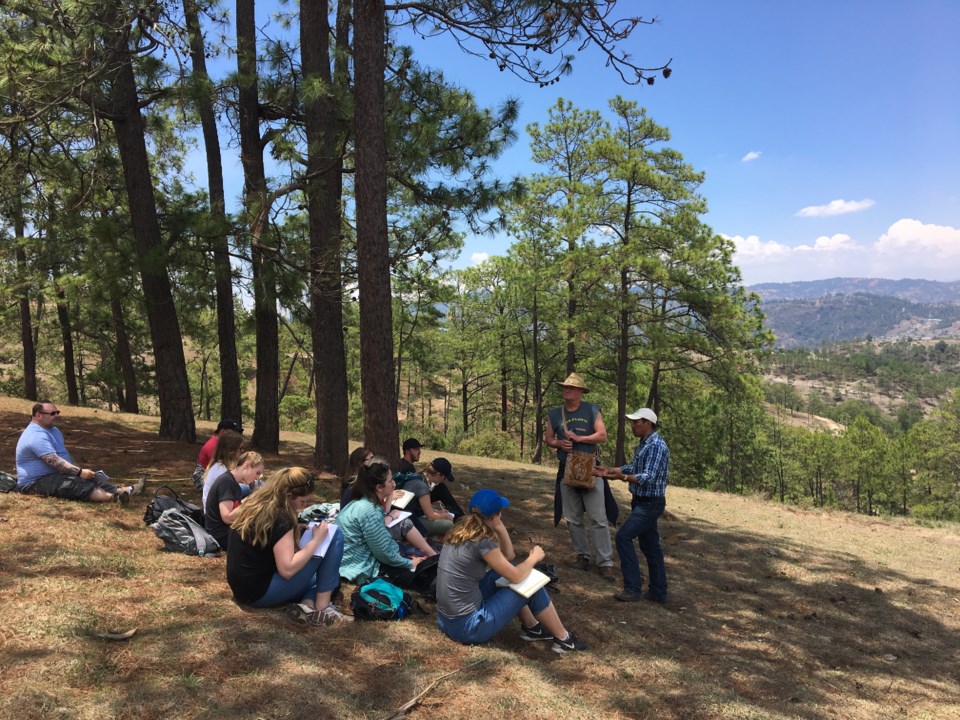University of Northern British Columbia (UNBC) students who want to study abroad can now apply for grant funding which supports international travel related to their studies.
The Travelling Knowledges program provides financial support for up to 62 domestic undergraduate students in any discipline for trips ranging from three weeks to one year.
Students can use the funds to help pay for travel, living and academic expenses as well as costs related to childcare, travel documents and health insurance when participating in international field schools or individual travel related to course study.
This offering has been made possible by nearly $500,000 in competitive grant funding from the Government of Canada’s new Global Skills Opportunity program. Depending on the length of travel, students can apply for grants ranging from $1,000 to $10,000 for travel taking place between 2022 and 2026.
“Travelling Knowledges makes global education more accessible for UNBC students,” says UNBC interim president Geoff Payne.
“When students travel as part of their undergraduate program they can make new connections, engage with different cultures, learn in new people and appreciate new experiences that simply are not possible in a traditional classroom.”
While open to all Canadian post-secondary students, the national program targets groups for whom international experiences have traditionally been less accessible — specifically Indigenous students, students from low-income backgrounds and those with disabilities.
It also aims to diversify destination countries where Canadian students pursue international learning.
The objective of Travelling Knowledges is to facilitate travel so students can bring their newfound knowledge and experience back to Canada and their communities,” says First Nations Studies associate professor and affiliated faculty member with the Department of Global and International Studies Agnieszka Pawlowska-Mainville.
“In addition to providing financial support, we will assist students with their emotional and academic needs. We want to ensure that all students who participate in Travelling Knowledges will gain inter-cultural, leadership, and work skills in a supportive environment,” adds Pawlowska-Mainville, who also serves as a member of the Travelling Knowledges project committee and the principal investigator behind the successful grant application.
Students can access the Travelling Knowledges program for costs associated with attending international field schools. Past field schools have included courses in Peru, Ireland, the Isle of Man, Zambia and Guatemala.
The program will also provide funding for students to participate in virtual mobility classes through the Department of Global and International Studies.
“The virtual mobility classes bring together students from across disciplines as they learn from global experts,” says the Chair of the Department of Global and International Studies Dr. Jacqueline Holler. “In addition, with travel opening up all over the world, we look forward to planning field schools with our international partners. International field schools are a great opportunity for students to travel and learn with their peers in a supportive environment under the guidance of experienced professors.”
Compared to similar countries, fewer Canadian students – only about 11 per cent of university undergraduates and three per cent of college students – participate in work- or study-abroad experiences during their studies. The new program stands to change that.
Students who are interested in the program can attend an info session on Friday, March 11 from 1:30 p.m. to 3 p.m. either at the Bentley Centre on the Prince George Campus or via Zoom.



